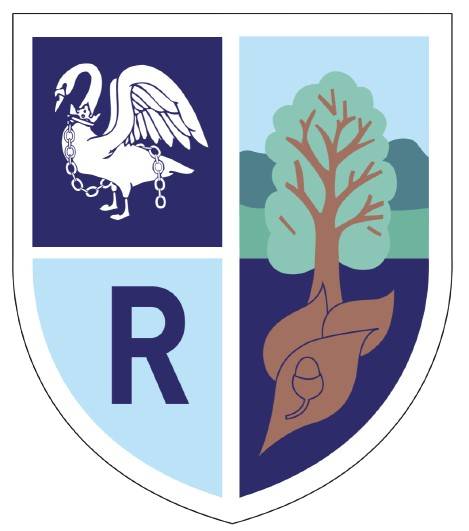English
Curriculum Statement
Intent:
English is at the heart of our curriculum. Our primary aim is to increase children’s confidence, enjoyment and ability in reading, writing and communication. Through the early acquisition of language and continual development of vocabulary, our children build on knowledge and skills sequentially as they progress through school. We promote our children to develop a love of reading and a passion for English, enabling them to become lifelong learners.

Implementation:
Our aim at Robertswood School is to enable children to become fluent and independent readers and writers, who can use a range of texts to build vocabulary and style. Drama and discussion are central to the teaching of English, enabling children to express themselves and experience a range of roles and experiences. Children can then select language accordingly, depending on the audience and purpose of the piece they are creating. Pupils are taught a range of techniques to enhance the quality of their prose, such as drafting and refining ideas, using varied sentence structures and creating dialogue that shapes characters and advances action.
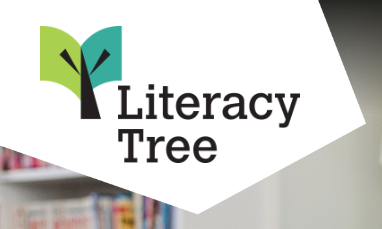
At the heart of our English curriculum, is the use of high-quality children’s literature, selected through Literacy Tree, designed to allow children to grow and expand their minds. The books included within our curriculum allow children to explore a wide variety of text genres, as well as being inclusive by representing a wide range of backgrounds, cultures and communities. The books we choose help children to grow ideas and expand their minds. We believe every child should be able to see themselves within the books that form their education and we choose significant and important children’s literature to enable this. To empower a child to write confidently is to enable them to have a voice and make themselves heard.

It all starts at the roots. Book-based planning sequences embed complete curriculum coverage and engage children to write with a clear audience and purpose, with regular opportunities to publish work and share with an audience.

We sow a seed with spelling, teaching spelling and vocabulary in context, through investigation and at the point of application. Spelling Seeds use the same texts as writing roots to provide further short writing opportunities and cover all the spelling patterns across the key stages. In EYFS and Key Stage 1, spelling teaching is also enhanced through Phonics teaching.

We grow literary knowledge through Literary Leaves. Sequenced activities take children through whole books to teach reading comprehension and create critical readers. Literary Leaves use novels, poetry collections and high-quality, non-fiction books that connect to the writing roots through the themes.
In the EYFS and Key Stage 1, synthetic phonics is used to support the learning of reading, writing and spelling. It aims to build children’s speaking and listening skills in their own right as well as to prepare children for learning to read by developing their phonic knowledge and skills. We encourage our children to develop a regular reading habit, through the use of phonic specific reading books supplemented with an extensive colour-coded reading book system.
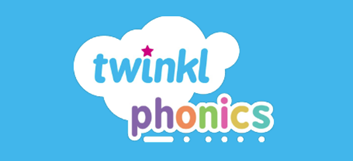
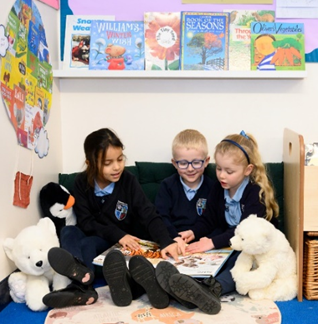
Impact:
Through our high-quality teaching of English, we aspire for all children to reach age-related expectations or above by the end of each year group. In each lesson, teachers assess pupils’ understanding through both verbal and written feedback. Teachers subsequently assess if pupils have met the objective and then act appropriately through small group catch up, 1:1 support or an additional lesson on a skill.
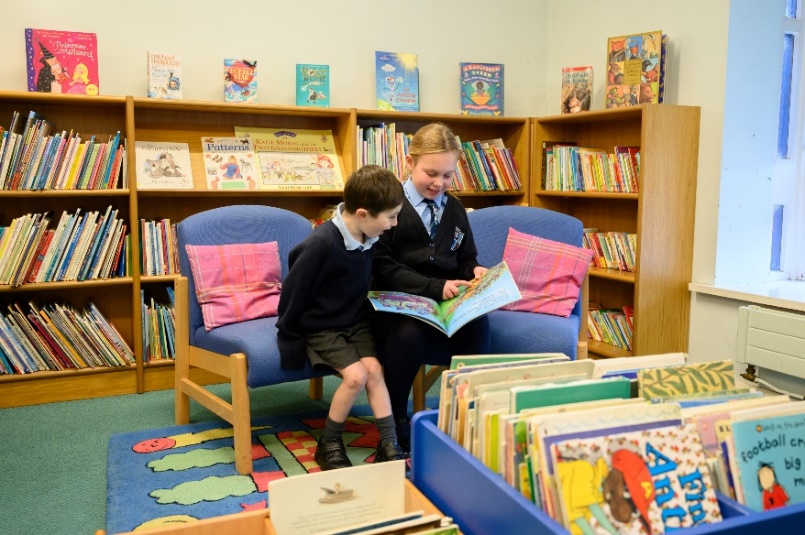
English is assessed termly and data is recorded and tracked to identify strengths and areas for development. Reading is assessed through reading comprehension tests, benchmarking and through teacher knowledge gained during other reading opportunities. Writing is assessed through in-depth discussions and evidence gathering, within and across year groups, against curriculum objectives, to provide a standardised approach to moderation of work across the whole school. Phonics assessments are done for all children in EYFS and KS1. Focus children are identified for additional phonics interventions into KS2. In addition to formative and summative assessment, the English leads and SLT complete work scrutiny and learning walks to gain a wider picture of English learning and its impact across the school.
